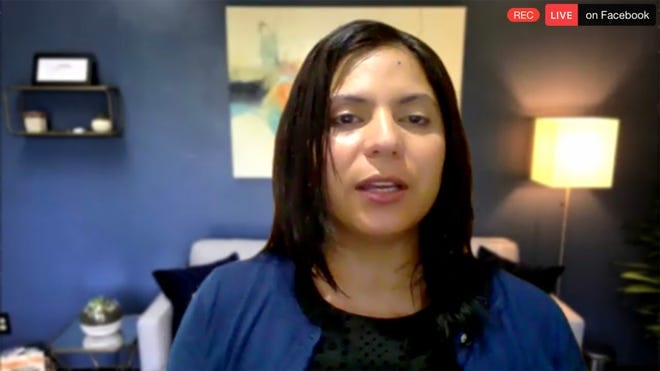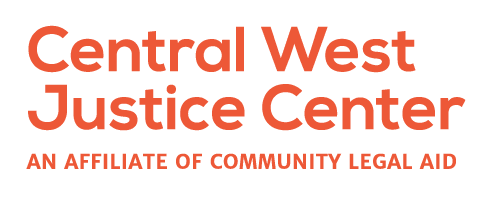
January 29, 2021
Worcester health experts work to dispel myths, allay fears of vaccine among Latinos
BY Worcester Telegram & Gazette
WORCESTER — While science was crucial to the creation of the COVID-19 vaccine, good old-fashioned trust is key to making the nationwide vaccination effort a success.
With this is mind, the University of Massachusetts Medical School, in collaboration with the Worcester Department of Health and Human Services, sponsored a webinar Thursday addressing the hesitancy of people in the Latino community to take the COVID-19 vaccine.
The webinar, “Conversación Virtual Sobre las Vacunas del COVID-19 (which translates to “Virtual Conversation about COVID-19 Vaccines”) was presented in Spanish, with English interpretation available.
Worcester Commissioner of Health and Human Services Dr. Matilde “Mattie” Castiel, along with Dr. Pablo I. Hernandez, chief medical officer at the Edward M. Kennedy Community Health Center, and Dr. Mireya A. Wessolossky, infectious diseases specialist at UMass Memorial Medical Center – Memorial Campus and associate professor at the University of Massachusetts Medical School, addressed the matter.
German Chiriboga, project director at UMass Medical School, and Gina Plata-Nino, a staff attorney at the Central West Justice Center of Community Legal Aid, served as moderators for the webinar, which was hosted by the medical school, the Worcester Latino Empowerment Organizing Network and Protégete Latino en Contra del Coronavirus.
With science on their side, Dr. Castiel, Dr. Hernandez and Dr. Wessolossky made impassioned pleas to the Hispanic community to get vaccinated, stressing it’s a personal, social and community responsibility to do so.
The three scientific experts and community leaders told the webinar audience that if we don’t get 80% of people vaccinated, we won’t be able to eradicate the coronavirus.
The three also took turns dispelling myths and misinformation circulating about the vaccine.
“We are not injecting a virus like we used to do before. It’s a copy of the virus of what is in the DNA. We’re not putting a virus in the body of a person,” Castiel said (in translation). “It’s very safe because it’s not anything that causes any type of a problem.”
“A lot of people come, especially Hispanics, with a lot of confusion. And they’re completely false that they’re going to die and that they did this vaccine so the African-Americans would die, maybe to make you infertile because they don’t want the Latinos having more children and it’s going to affect your DNA … And that they are even going to put a chip in you, to follow you, you know, as if Bill Gates wants to see exactly everything you’re doing,” Wessolossky said (in translation). “And this is completely false, completely false. And this is only confusing people. Please. It’s a vaccine and if we don’t (take it), it (the virus) is going to continue at a rapid pace.”
“It’s a plan that we all get vaccinated,” Hernandez added. “In the meantime, not lowering our guard is very important, wearing the mask, keeping a safe distance, washing our hands, so we can hug each other afterwards.”
Hours before the webinar, Stephenie Lemon, a professor of population and quantitative health sciences, chief of the Division of Preventive and Behavioral Medicine and co-director of the UMass Worcester Prevention Research Center at UMass Medical School, said the hesitancy of getting the vaccine is “very real and needs to be addressed.”
“We need to do better,” Lemon said. “And one of the key pieces to improve our take of the vaccine is really to do our best to help people understand what the vaccine is all about, so that they can make a more informed decision, instead of a decision based on what they’re hearing on social media or other misinformation and myths that are out there.”
A lot of people are trying to take “a wait and see” attitude to the vaccine. Others are questioning if the vaccine is safe. While these concerns are very real to the individual, for the most part, they are not scientifically valid, Lemon said.
“What people need to understand, number one, the experiments have been done in adults,” Lemon said. “The Guinea pig stage is over. The scientific experiments and the data indicate that the Pfizer and the Moderna vaccines that are currently available in the United States are exceptionally efficacious and safe.”
Lemon stressed that the vaccine does not include any live virus and the vaccine cannot cause the COVID infection. Furthermore, while the side effects are also real, Lemon said they are not necessarily dangerous.
“People need to understand that there is a very real possibility that they are going to have some side effects with the first and/or second dose of the vaccine,” she said. “But those risks are very small in comparison to the risks of not getting the vaccine, which include illness to oneself or to loved ones and those who you are around.”
Addressing the concerns that the vaccine was rushed, Lemon said everything was done in a very scientifically rigorous way and there were a lot of eyes on this looking over safety, first and foremost, but, then, efficacy, second, which is equally important.
And, in the end, what you are seeing with the vaccine is “Science at its best,” Lemon said.
“The mRNA (Messenger RNA) approach to vaccines is newer but it has been in development for over 10 years and the whole process of mRNA vaccines is really a game-changer in a lot of ways,” Lemon said. “We cut through a lot of red tape on this. So that’s really what happened is that people came together. The scientific community came together. The people who participated in the trials came together in record numbers. And things happened in a way that was efficient – I think is probably a better word – but definitely not rushed.”
Lemon said the African-American and Latino communities are more hesitant to get the vaccine, which is a serious matter that is understandable.
“We need to remember sometimes where people are coming from and their history with the healthcare system and with research in general and there are certainly populations that have been exploited in research and have been exploited and treated badly,” Lemon said. “We have to be really aware of that backdrop and that context and take it very seriously.”
The UMMS Office of the Chancellor along with the Departments of Population & Quantitative Health Sciences, Medicine, Family Medicine & Community Health, and Emergency Medicine were also involved in planning Thursday’s webinar.
